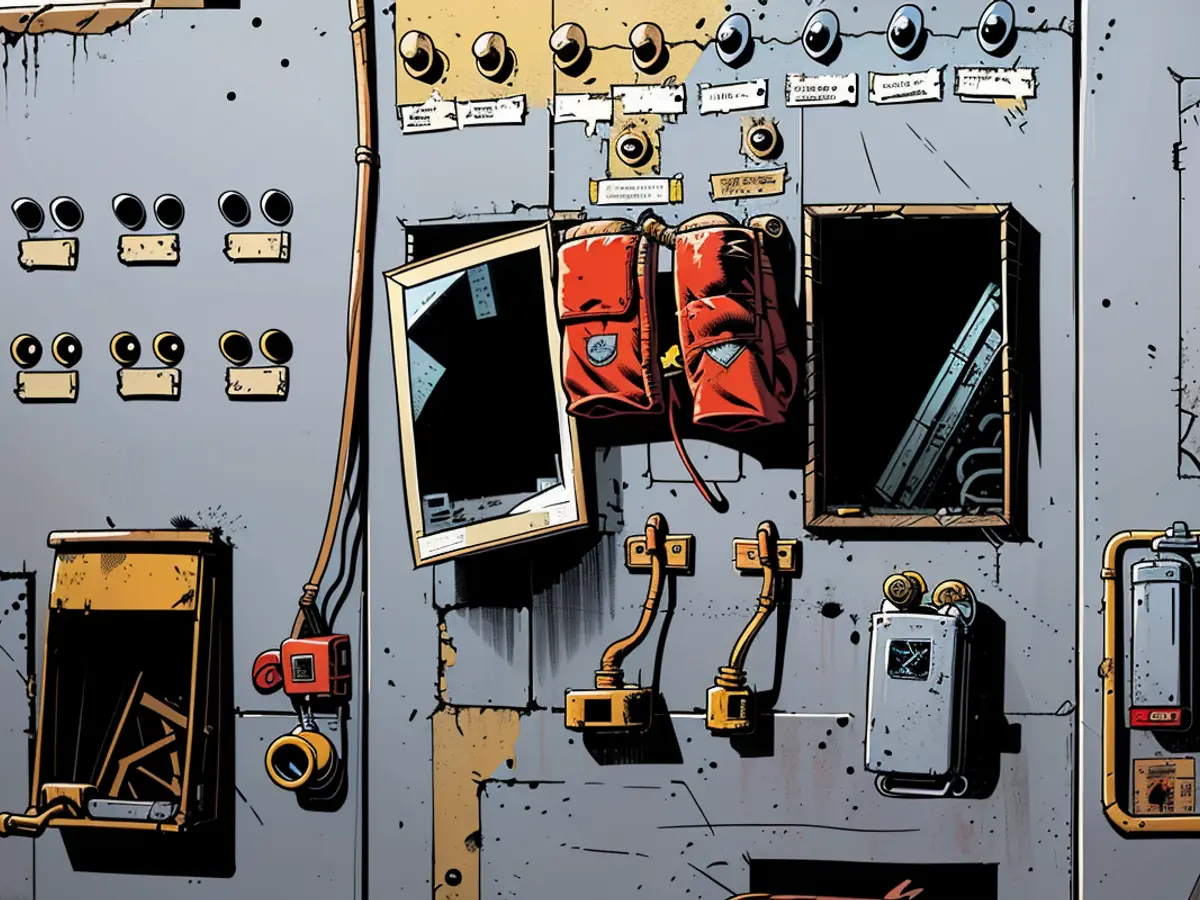Approximately half of Ukraine's electricity-generating capacity has been wrecked.
The Ukrainian president claims that Russia has destroyed about half of the country's electricity production capacity. This issue is likely to be a major focus at the upcoming reconstruction conference in Berlin.
Nonetheless, holding a reconstruction conference during an ongoing war may seem questionable. Since the end of March, widespread attacks on Ukraine's energy infrastructure have targeted thermal and hydroelectric power plants, causing significant depletion in their capabilities. According to the Ukrainian state electricity provider Ukrenergo, there has been a substantial reduction in power plant capacity.
President Volodymyr Zelensky highlighted during the conference that Russia destroyed half of Ukraine's electricity production capacity. DTEK, one of the largest power suppliers, has also reported a 90% loss of its capacity. The company used to provide electricity to approximately 40% of Ukrainian households before the offensive.
With air defense considered essential for safeguarding power plants and other crucial facilities, Zelensky emphasized the importance of securing at least seven Patriot air defense systems for Ukraine. He expressed his gratitude towards Germany for providing three of these systems.
Even though building larger power plants might not be feasible due to potential air raids, the focus of this conference will primarily revolve around encouraging private investment in the solar and wind sectors. This approach may help mitigate the power outages that have become increasingly common and address the heating concerns that may arise in the winter.
Although smaller-scale solar power plants are unlikely to resolve the industrial power demand, they could offer relief to residential areas stricken with persistent power loss. Nuclear power plants should provide adequate electricity for the Ukrainian industry. However, concerns persist regarding potential Russian attacks on these facilities.
The energy sector is not the only sector that has been adversely affected by the ongoing war. A collaborative analysis conducted by the Ukrainian government, World Bank, European Commission, and the UN in February 2024 estimated Russia's overall damage to Ukraine at approximately $152 billion, which continues to escalate as new attacks are launched almost daily.
The impact on housing may be particularly considerable, as it is assumed that Russia has already destroyed or damaged approximately 10% of the housing capacity. The total damages in this sector are estimated to account for 37%. Some of the worst affected regions include Kharkiv, Donetsk, Luhansk, and Zaporizhzhia, while the region around the capital Kiev remains in jeopardy as well. Similarly, the transport infrastructure, industries, and agriculture sectors have also endured considerable damage.
The estimated rebuilding cost of Ukraine, as of February 2024, approximates $486 billion, representing a considerable increase compared to the initial February 2023 assessment of $411 billion. The expenditure allocated for rebuilding the housing sector is predicted to account for 17% of the total budget, making it the most significant sector in need of rehabilitation. The Berlin Conference for Ukraine, therefore, carries substantial strategic significance and marks one of Ukraine's most crucial foreign policy events for this year, alongside the impending peace summit in Switzerland per President Volodymyr Zelensky's peace formula.
Despite preparations for the conference, unrest surrounding the appointment of a successor for the recently dismissed Vice Prime Minister and Infrastructure Minister Oleksandr Kubrakov intensified on the Ukrainian side. Hopes for finding a suitable replacement before the event had not been realized, creating some unease among Western ambassadors who were familiar with Kubrakov. Even the German ambassador Martin Jäger showed support for Kubrakov through his social media posts.
A day before the conference, the head of the state agency for reconstruction and development announced his resignation, Mustafa Najem. Although a former journalist and well-known face of the Maidan Revolution (2013/2014), Najem claimed to resign on his own accord due to the persistent obstacles that hampered his ability to perform his duties effectively. As a result, Ukraine will not be represented at the conference by the relevant minister or the head of the accountable state agency.

Read also:
At the Berlin reconstruction conference, Volodymyr Selensky emphasized Russia's destruction of half of Ukraine's electricity production capacity. The ongoing attacks on Ukraine's energy infrastructure, such as thermal and hydroelectric power plants, have significantly impacted the country's energy supply.








